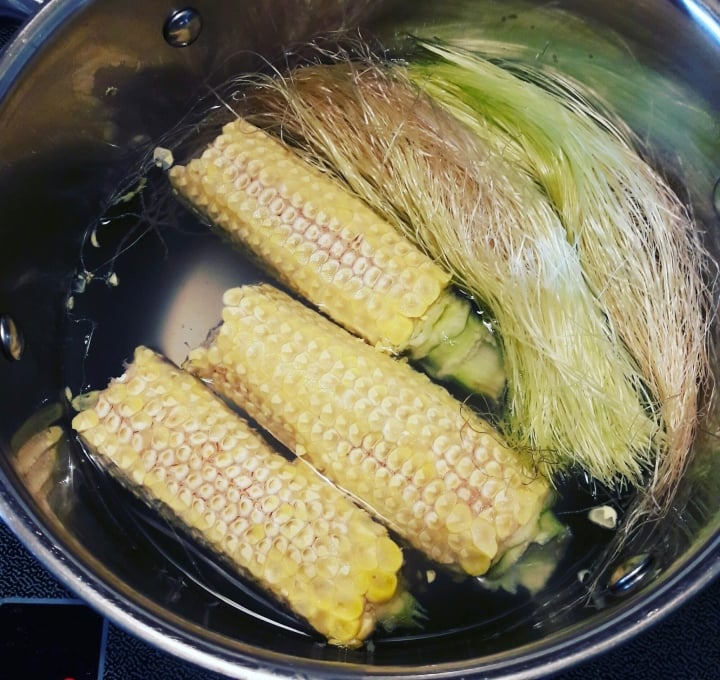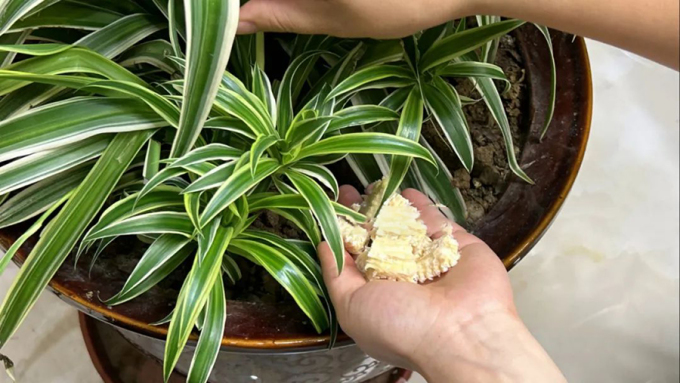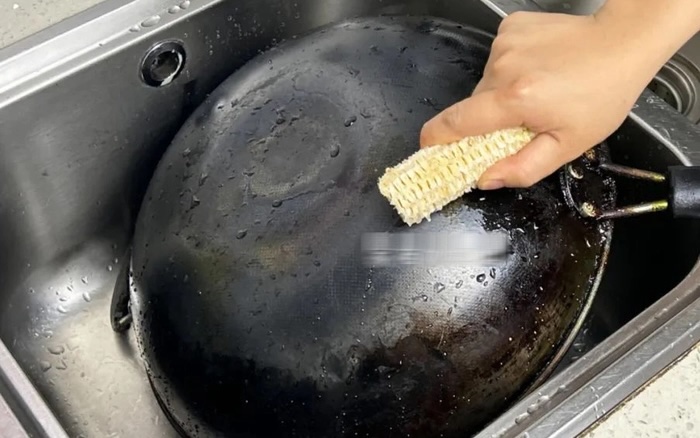Corn Cob Water: A Healthy Beverage
Corn Cob Water: A Refreshing and Healthy Beverage
According to information from the Korean online platform, Naver, Koreans often brew corn cobs into a drink, similar to how they make tea. This beverage is known for its numerous health benefits, such as promoting diuresis, reducing edema, preventing jaundice, and addressing bleeding-related issues.
Aside from being a refreshing drink, corn cob water can also be used for gargling once cooled. Thanks to its Beta-sitosterol content, this water can deeply penetrate teeth, helping to reduce gum inflammation and improve oral health, thus protecting the gums from unwanted damage.
Due to its effective antibacterial and anti-inflammatory properties, corn cob water has become a favorite choice for many in Korea, especially in folk remedies.
A Delicious Culinary Ingredient
Corn cobs are not just for drinking; they are also a unique culinary ingredient. In some regions, cooks use corn cobs to add flavor to soups, as their natural sweetness enhances the taste and appeal of the dish.

Corn cobs are used not only for brewing but also as a unique culinary ingredient.
Effective Odor Absorber
Effective odor absorption is something that many households are concerned about, especially in areas like bathrooms and kitchens, where unpleasant odors can easily occur. One simple yet effective method is to use dried corn cobs.
To apply this method, simply sun-dry or dehydrate corn cobs and place them in the corners of your bathroom. The cobs will help absorb odors. To enhance their effect, you can add a few drops of essential oil to the cobs before placing them. This not only helps repel mosquitoes but also leaves a pleasant fragrance in the space.
In the kitchen, dried corn cobs also act as a natural filter, absorbing smoke and impurities in the air. After just one night, you’ll notice the cobs turn from white to dark brown, indicating their effectiveness in absorbing moisture and removing impurities.
Great for Gardening
Corn cobs are not just waste; they are a fantastic way to improve the gardening process. When properly treated, corn cobs offer multiple benefits for plant growth.
First, corn cobs improve soil aeration when cut into small pieces and placed at the bottom of plant pots. This helps keep the soil loose, thereby maintaining a favorable environment for root development. Moreover, over time, this layer of corn cobs prevents soil compaction, allowing roots to grow freely.
The process is simple: first, sun-dry the corn cobs until they are completely dry, then cut them into small pieces. Next, line the bottom of your plant pot with a thin layer of corn cobs before adding the potting soil. Thanks to the corn cobs’ airy structure, irrigation water can easily drain, reducing the risk of waterlogging and root rot. Additionally, corn cobs help control the growth of harmful bacteria, creating an ideal environment for lush, healthy plants all year round.
You can experiment with this method to see the benefits corn cobs bring to your garden.

Try using corn cobs to see the benefits they bring to your garden.
Feed for Poultry
Preparing feed for poultry is crucial for ensuring their health and development. Corn cobs, with their high nutritional value, have become an excellent choice for poultry such as chickens and ducks. This ingredient is not only rich in cellulose but also provides various minerals, contributing to the birds’ overall development and improved meat quality.
To process corn cobs, follow these simple steps. First, sun-dry the cobs until they are completely dry. Then, grind the cobs into a fine powder and mix them into the main feed for the poultry. This method is not only cost-effective but also ensures safe and nutritious feed for your birds.
Scouring Pots and Pans
Cleaning the bottoms of pots and pans is a common task in the kitchen, but stubborn burnt stains and grease can be frustrating. Instead of using traditional scrubbing tools, try a simple yet effective tip: use dried corn cobs.
Corn cobs have a rough surface and good abrasiveness, allowing them to remove stubborn stains without scratching the surface of your cookware. Just gently rub the corn cob on the stained areas, and you’ll immediately see the difference, all without the need for harmful chemical cleaners. This is a natural and safe solution for cleaning your cooking utensils.

Corn cobs have a rough surface and can effectively remove stubborn stains without scratching your cookware.
Fuel for Fire
Corn cobs, often considered waste, are actually a valuable resource thanks to their high lignin and cellulose content. They burn slowly and generate stable heat, making them an ideal choice for fuel in many households, especially in rural areas.
When lighting a fire or cooking, corn cobs can easily replace firewood. One of the most notable benefits of this fuel is its fast-burning rate, high heat generation, and natural decomposition after use, reducing negative environmental impacts.
Clearly, corn cobs, once thought to be worthless, offer surprising benefits when utilized properly. They are not only useful for gardening and cleaning but can also be used as fuel and poultry feed. This demonstrates the potential for natural recycling, allowing us to protect the environment and save costs. For this reason, many countries have embraced the idea of packaging and selling corn cobs in supermarkets as a valuable product.
































